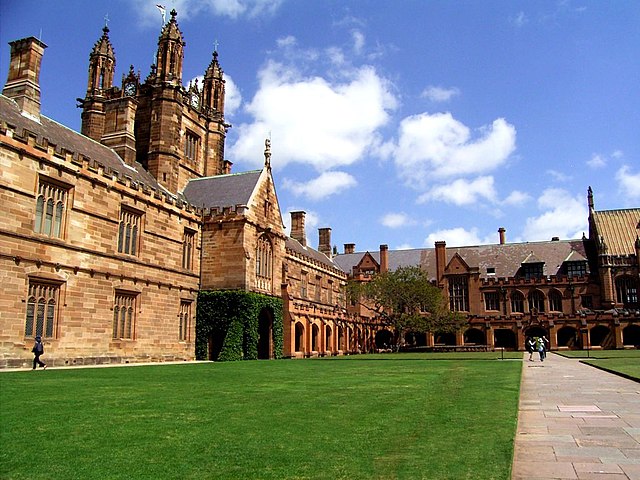
Staff Concerned as Universities Threaten Job Cuts Amid Caps on International Students

More than 1,000 jobs could be lost across seven universities due to significant budget cuts announced in recent weeks, raising concerns that the crackdown on international students is pushing the sector to a breaking point.
The federal government’s proposed international student caps, which are expected to take effect next year will significantly affect university budgets, given their strong dependence on overseas student fees,
In August, the federal government announced a historic cap on international student enrolments, limiting them to 270,000 by 2025 for the first time.
Of these places, 145,000 will be allocated to public universities, while 95,000 will be designated for foreign student commencements in the vocational education and training (VET) sector.
The remaining 30,000 spots will be available for other universities and providers.
Education Minister Jason Clare stated that these changes aim to place the sector on a “more sustainable footing going forward.”
He also revealed plans to abolish ministerial direction 107, implemented in December, which prioritised student visa approvals based on education provider risk ratings.
Universities’ Reliance on International Students Funding Under Threat
This August, Luke Sheehy, the chief executive of Universities Australia, emphasised that tertiary institutions have become heavily reliant on revenue from international students to sustain their operations.
Sheehy told The Guardian that tertiary institutions had “come to rely on international student revenue to fund everything we do in the face of declining government support in recent years – from teaching and research to infrastructure projects and employing people in well-paid jobs”.
As government support has declined in recent years, universities have turned to international student fees to fill the financial gap.
With the introduction of caps on international student enrolments, there are serious concerns about the future financial stability of these institutions.

ANU Staff Cuts on Horizon
Earlier this month, Genevieve Bell, vice-chancellor of the Australian National University (ANU), warned staff that the financial challenges facing the institution are “substantial.”
The ANU is projecting a deficit of over $200 million this year, significantly higher than the expected $60 million shortfall, and has accumulated a deficit of more than $400 million from 2020 to 2023.
Bell explained that to address the deficit, ANU would need to reduce recurring operating costs by $250 million over the next 15 months, primarily through cuts in both salary and non-salary expenses.
“This decision has not been taken lightly. All attempts are being made to minimise the number of redundancies; however some job losses will be unavoidable,” she said in a statement.
According to data from the Bureau of Statistics, hundreds of thousands of students contribute approximately $30 billion to the economy each year, making international education Australia’s fourth-largest industry.

Staff Cuts Across Queensland, Canberra, and New South Wales Universities Amid Major Deficits
In the last month, universities in Queensland, Canberra, and New South Wales have announced staff cuts as part of significant restructuring efforts to address major deficits.
Last week, the Australian National University (ANU) revealed plans to eliminate 87 positions across three divisions, following an earlier reduction of 50 jobs in its College of Health and Medicine.
Additionally, the University of Canberra announced 200 redundancies on Monday, with Vice-Chancellor Stephen Parker stating that the institution needs to save $50 million by the end of the year.
“I expect at least 200 staffing positions to be removed this year and in the first half of next year…Some will be found from positions that are or become vacant and contracts that are expiring, but redundancies seem inevitable,” Parker said.
Federation University Australia has been the most affected by the cap, with regional Victoria’s largest educational institution allowed to admit only 1,100 overseas students from 2025, a significant decrease from its 2023 intake of 2,306.


Additionally, Melbourne’s indicative cap for new international students is set at 9,300 for 2025, reflecting an 18 percent decrease from the number the University of Melbourne had anticipated for the upcoming year.
Nicola Phillips, acting vice-chancellor at the University of Melbourne, stated that there is no doubt the impact of the proposed cap would be “significant and damaging” for the university.
The cap represents a potential revenue loss of around A$85 million in 2025, with further implications for future years.
Phillips warned that the proposal “will harm all students, both domestic and international, and jeopardise the sector’s reputation and long-term sustainability.”
Foreign Income & reliance on international students drives higher ed corporatisation
In August NTEU President Alison Barnes highlighted that the increasing reliance on foreign income has driven a trend toward “corporatisation” within the higher education sector.
Barnes told The Guardian that the “aggressive pursuit of international student income” has fostered a culture focused on revenue generation, profit margins, and competition among universities for student enrolments.
As universities confront the financial challenges posed by caps on international student enrolments, the looming job cuts jeopardise staff stability and morale.
More campuses are expected to follow suit with job cuts as they seek to retain their business models amid these pressures.
The federal government will have two weeks to pass its student cap bill when Parliament reconvenes in November.









Leave a Reply